New York Film Festival (September 26th - October 12th, 2008)

Click here for more program information and to purchase tickets.
Please click here to read an interview with Mickey Rourke, the star of The Wrestler (Closing Night Film).
24 City
Directed by Jia Zhangke.
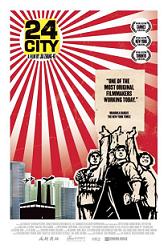
In Mandarin with subtitles. This illuminating combination of documentary and docudrama focuses on Factory 420, formerly known as Xindu Machinery, an aviation factory located in Chengdu, China, which is in the process of being demolished and replaced by an upscale, high-rise, upscale apartment and shopping complex called 24 City. Employees from the factory who had once worked there during the 1950’s and 60’s 1950 reminisce about their experiences, especially when there were layoffs. On their last day of work, the factory workers ate dinner together, but most of them felt too dejected to eat, yet one worker recalls how she encouraged them to do so nonetheless. Co-writers Jia Zhangke and Zhai Yongming include some fictional characters played by actors or actresses amongst the real-life interviews, so unless you recognize the actors/actresses by face, you won’t be able to tell the difference between what’s fiction or nonfiction. The fictional characters’ testimonies are based on interviews of real workers. One “employee”, nicknamed Little Flower, played by Joan Chen, discusses her love life and how she’s happy being single now after many failed relationships. A coworker who once had a crush on her shows up later on in her life. She admits that it made her feel uncomfortable when he admitted to her that he couldn’t ask her out back in her younger years because he was poor and wanted to wait until he became wealthier. Instead of bombarding the viewer with historical facts in a dry, pedantic fashion, director Jia Zhangke gradually informs the audience about the evolution of Factory 420 and how its changes have impacted the thoughts and sentiments of its workers to this very day. There’s also some footage of workers collectively singing songs such as “The Internationale,” which has eloquent lyrics. The exquisite cinematography and images, such as images of the factory being demolished, add to the overall emotional resonance, even during the silent moments, which speak volumes more than words are capable of expressing. At a running time of 1 hour and 47 minutes, 24 City manages to compelling and provocative with powerful images and quietly moving interviews that shed light on impact of social, economical and political changes on factory workers in China. Number of times I checked my watch: 1 Released by The Cinema Guild. Opens June 5th, 2009 at the IFC Center. 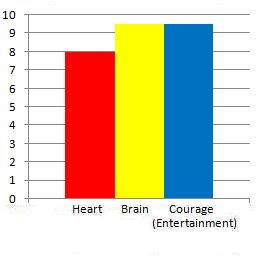
Ashes of Time Redux - Directed by Wong Kar Wai.

Based on the novel by Louis Cha. Ouyang Feng (Leslie Cheung) suffers from a broken heart when his brother steals away his soul mate. A blind swordsman (Tony Leung Chiu Wai) and another martial arts fighter, Hung Chi (Jacky Cheung), assist him at battle. Meanwhile, a young woman (Charlie Young) seeks revenge for her brother’s murder. Anyone looking for an easy-to-follow, compelling plot should look elsewhere. Writer/director Wong Kar Wait includes plenty stylish action sequences along with brilliant cinematography filled with vibrant colors that make the film come alive. The same can be said about the exquisite costume design. Some scenes look so beautiful to the eyes that you’ll feel like you’re looking at a painting. By contrast, the many dramatic scenes feel dull and contrived while none of the characters are particularly memorable or interesting. Originally made in 1992 and never released to theaters in the Unites States, Ashes of Time Redux finally comes to the big screen re-edited and, while it won’t impress you with its story, at least you’ll be amazed at Wong Kar Wai’s truly artistic knack for visual splendor which will at least keep you mildly engaged. Number of times I checked my watch: 4. Released by Sony Pictures Classics. Opens October 10th, 2008 at the Angelika Film Center and Lincoln Plaza Cinemas.
The Class (*Opening Night Film*)
Directed by Laurent Cantet.

In French with subtitles. Based on the book by François Bégaudeau. François Marin (François Bégaudeau) starts teaching a class about the French language to a diverse group of high school students at the beginning of the new school year. Those students include Carl (Carl Nanor), Arthur (Arthur Fogel), Esméralda (Esméralda Ouertani), Khoumba (Rachel Regulier), Wei (Wei Huang) and Souleymane (Franck Keita), among others. Each student has his or her interesting, complex personalities that slowly externalize so that they never really become stereotypes. Wei, for example, seems like a well-behaved and diligent student. Souleymane, who’s originally from Mali, and often causes trouble in class. Arthur feels like an outsider with his Goth style while Esméralda behaves stubbornly and annoys the teacher. There’s more to these students than meets the eye and it’s somewhat interesting to observe how they change or don’t change by the end of the school year. Co-writer/director Laurent Cantet shoots the film with a high definition digital camera in a cinéma vérité style that intentionally creates some chaos while creating a modicum of dramatic tension that arises from the interactions and dynamics between François and his students. Like the Chaos Theory predicts, there’s always some form of structure and order to be found within chaos, though. Admittedly, it takes a while to get absorbed into the film amidst all the chaos while getting to know the students. You’ll also find yourself relating to at least one of those students at some point. Occasionally, though, the interactions between them and the teacher feel repetitive and dull, especially because the majority of scenes take place inside the classroom for a long period of time. More comic relief would have helped to lighten some of the seriousness and to alleviate some of the blandness. Fortunately, though, there aren’t any scenes that feel forced or awkward. The most moving and captivating scene occurs when Souleymane’s mother shows up to an important meeting at school with her son. It’s very rare when you get to meet the parents of students in a high school drama, so when you briefly meet them in The Class, it makes the film even more realistic. While François Bégaudeau’s little experience on television in France along with his experience teaching in a high school, too, help to enhance his performance and make it convincing. The same can be said for the students who, despite not having any prior experience in acting, radiate an abundant amount of palpable energy and believable performances. At a running time of 128 minutes, The Class occasionally drags and overstays its welcome by roughly 30 minutes. While not as emotionally resonating and insightful as other classroom dramas such as Freedom Writers or as captivating as Dangerous Minds, at least it’s mildly compelling, quietly moving and consistently true-to-life.
Number of times I checked my watch: 3. Released by Sony Pictures Classics. Opens January 20th, 2009 at the Angelika Film Center and Lincoln Plaza Cinemas.
Changeling (*Centerpiece*)
Directed by Clint Eastwood.
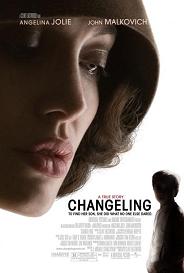
Based on a true story. In 1928 Los Angeles, Christine Collins (Angelina Jolie) searches for her abducted 9-year-old son, Walter (Gattlin Griffith), after a the LAPD return to her a boy (Devon Conti) claiming to be her son. She has every right to suspect that there’s corruption within the LAPD because the boy looks different compared to Walter. Wouldn’t a mother be able to recognize her own son? The LAPD, of course, uses they all their power to silence her so as not to destroy their reputation. They even go to the extent of throwing her into a mental institution under the assumption that she’s insane simply because she refuses to recognize the boy as her son like they want her to do. John Malkovich plays an activist/preacher who’s determined to help her to fight the corrupt police department. The screenplay by J. Michael Straczynski has some moments of intrigue and tension, especially when Collins confronts the police to try to set them straight, but, for the most part, it plods along in a dull manner. There’s simply not enough suspense to enjoy the film as a mystery while the dramatic elements feel contrived. On a positive note, Angelina Jolie delivers a very strong performance and sinks into the role of Collins with such conviction that you’ll be able to root for her during her plight to find out what happened to her son. Clint Eastwood shows his skills once again as a director with terrific cinematography, editing and impressive costume and setting designs that look authentic for that era. If only the screenplay were more dramatically intense and provocative, Changeling would have been much more powerful and emotionally stirring to watch. At an excessive running time of 2 hours and 20 minutes, it slightly overstays its welcome and occasionally drags. Number of times I checked my watch: 3. Released by Universal Pictures. Opens October 24th, 2008 (limited) and expands on October 31st, 2008.
A Christmas Tale
Directed by Arnaud Desplechin.
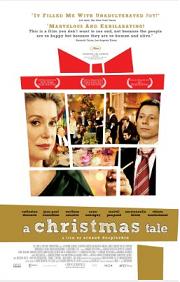
In French with subtitles. Junon (Catherine Deneuve), diagnosed with cancer, needs a bone marrow transplant from one of her children, who gather together for Christmas. The children include Elizabeth (Anne Consigny), Ivan (Melvil Poupaud) and Henri (Mathieu Amalric), each of whom have their own problems to deal with. Elizabeth has a dysfunctional relationship with both her husband (Hippolyte Girardot) and her brother, Henri, an alcoholic drug addict who she banished from the family. Throughout the family get-together, Ivan arrives with his wife, Sylvia (Chiara Mastroianni) and two kids while Henri brings Faunia (Emmanuelle Devos), his Jewish girlfriend. Also, Elizabeth’s teenage son, Paul (Emile Berling), suffers from loneliness and lack of self esteem. Jean-Paul Roussillon plays the Junon’s patriarch. Just by the sound of the lengthy premise, everyone in the family could use a lot of therapy. Director/co-writer Arnaud Desplechin crams in so much melodrama, characters and subplots that the film’s running time could easily be 6 hours. With its running time of 2 hours and 23 minutes, it feels contrived, convoluted and chaotic. Moreover, Desplechin uses the oldest plot device in the book by mixing in cancer as a means to generate some poignancy. The same plot device was used in another Christmas get-together movie called The Family Stone. Unfortunately, none of the characters truly come to life while the dramatic scenes tend to drag. The terrific ensemble cast, especially Catherine Deneuve, of course, does their best enliven the film a bit and add some much-need charm and a modicum of warmth. With a more focused and sharper screenplay, A Christmas Tale could have been much more captivating and emotionally involving. Number of times I checked my watch: 4. Released by IFC Films. Opens November 14th, 2008 at the IFC Center and Lincoln Plaza Cinemas.
Happy-Go-Lucky - Directed by Mike Leigh.
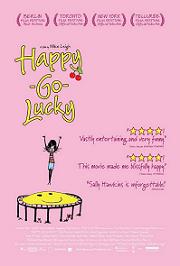
Poppy (Sally Hawkins) lives a carefree life as a primary school teacher with an cheerful personality, unlike her cynical best friend, Zoe (Alexis Zegerman). When someone steels her bicycle, she remains upbeat and decides to take driving lessons with an instructor, Scott (Edie Marsan), who turns out to be a lonely, passive-aggressive man. Poppy’s excessive cheerfulness gradually become annoying to Scott and others around her, but she doesn’t let anyone stop her. Interestingly, there’s no use of any cheerful ABBA songs to accompany any of the scenes, which would have fit perfectly whenever Poppy’s onscreen. In a hilariously over-the-top and offbeat scene, a flamenco teacher (Karina Fernandez) expresses her emotions melodramatically during a flamenco class that Poppy attends. Sally Hawkins delivers a truly lively and radiant performance here that should garner her with at least an Academy Award Nomination. Unfortunately, there’s really not much else to hold your attention besides observing the way that Poppy behaves and interacts with others. Writer/director Mike Leigh fails to make her an interesting character beyond her upbeat personality as if the audience were supposed to extrapolate what her childhood was like and what, if anything, she might be masking behind her smiles. It’s not quite clear how she has truly changed or transformed internally from the first act up through the third act. Moreover, Leigh includes an awkwardly lengthy scene with her interacting with a homeless man, which takes away from the little momentum that the film had. Although mildly amusing at first, Happy-Go-Luckyultimately falls flat as a comedy and lacks the much-needed character depth and dramatic tension to be compelling as a drama. Number of times I checked my watch: 4. Released by Miramax Films. Opens October 10th, 2008 at the Landmark Sunshine Cinema and Lincoln Plaza Cinemas.
The Headless Woman
Directed by Lucrecia Martel.
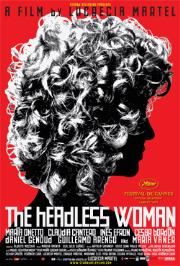
In Spanish with subtitles. Vero (Maria Onetto), a middle-aged woman, drives down a road during a downpour and, as she reaches to answer her cell phone, she feels and hears a few thuds, as if her car had run over a something. She immediately stop her car, freezes and simply drives away without looking back to see what or who she had run over. It appears to be that she ran over a dog, which lies dead on the road, but she’s under the impression that it was a young boy instead who she accidentally killed. After stopping by the hospital to get an X-ray, she heads on over to a hotel where she has sex with Juan Manuel (Daniel Genoud), who’s married to Josefina (Claudia Cantero). Candita (Inés Efron), Josefina’s daughter, has a physical attraction toward Vero. It turns out that Vero not only has a husband, Marcos (César Bordón), but two daughters as well. Ever since the day of the accident, though, she has been behaving strangling as if she has amnesia. Essentially, she experiences trauma from the accident itself and from her fear that she killed a young boy. Even though, initially, she’s not completely sure about whether or not she actually ran over a boy, her memory and trepidation continue to play tricks on her, so, eventually, she becomes convinced about it and also admits it to Marcos, who tries to help her by driver her to the scene of the accident. Viewers looking for a thriller with action and relentless suspense, i.e. Tell No One, will be disappointed. Writer/director Lucrecia Martel wisely doesn’t use shaky camera movements to generate tension. Instead, builds up the psychological tension very gradually. You expect Vero to suffer some sort of a nervous breakdown after the accident, but, instead, she doesn’t show any signs of rational thinking or outwardly expressions of regret. Is she merely in a state of shock that causes her to be so calm or is it more complicated than that? The slow pace along with Vero’s calmness helps to create an initially eerie atmosphere as if some kind of twist or tragic event will suddenly occur at any point, but eventually the pace turns too sluggish. You’ll probably find yourself asking, “Where is all of this going exactly? Why should I care about what happens to Vero or anyone else onscreen in the first place?” Martel, who previously directed The Holy Girl and La Cienaga/The Swamp, gives you very little background information about Vera’s past before the accident and she doesn’t really open up emotionally, so you’re left with more frustrating questions than answers, even as the third act draws nearer. At a running time of 87 minutes, The Headless Woman manages to be an initially intriguing, well-shot psychological drama with diminishing suspense. It eventually starts to drag, leaving you feeling concurrently frustrated and underwhelmed. Number of times I checked my watch: 4 Released by Strand Releasing. Opens August 19th, 2009 at the Film Forum. 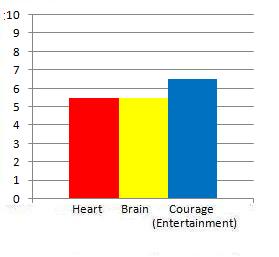
Hunger
Directed by Steve McQueen.

Based on a true story. Bobby Sands (Michael Fassbender) a member of the Irish Republican Army, protests against the British government and gets locked up in Maze Prison at Belfast, Ireland, where he starves himself. Before his ordeal gets depicted onscreen, you watch as other IRA prisoners suffer at the jail. Davey Gillen (Brian Milligan), suspected for terrorism, observes that the last inmate had smeared feces on the cell’s walls and that the guards, who physically abuse them, drench the prison’s halls with urine. He and his cellmate, Gerry Campbell (Liam McMahon), refuse to wear their jail uniform or to get cleaned up. Not surprisingly, they have no choice but to eat food infested with maggots. They also devise inventive methods for communication. It’s frightening to imagine the realities of these physical and mental tortures in prison have been echoed in the way that the U.S. army tortured prisoners at the prisons of Guantanamo Bay and Abu Ghraib, which you may recall from the documentaries Standard Operating Procedure and Taxi to the Darkside. After all, during George W. Bush’s term as U.S. President, he found a way to legalize torture. Going back to Hunger, there’s another subplot where Raymond Lohan (Stuart Graham), a security guard during the IRA riots in Belfast, fears for his life as he checks for bombs beneath cars. Director/co-writer Steve McQueen wisely sets up the stage and atmosphere for the real crux of the story: the experiences of Bobby Sands at Maze Prison. Dominic Moran (Liam Cunningham), an Irish priest, has a lengthy conversation with him that involves tough, provocative questions about sacrifice, which help you to get into Bobby’s mind once he lays his thoughts and feelings out on the table. No matter how keenly you observe the prisoners’ terrible conditions at the prison, nothing will prepare you for observing what Bobby goes through during the last thirty minutes of the film. McQueen uses many close-up shots of his physical condition as he continues to starve himself. It often feels so palpably devastating, horrifying and tragic to watch Bobby suffering that you’ll be tempted to cringe and look away. Many of the images, though, look quite emotionally powerful without dialogue. At a running time of 92 minutes, Hunger manages to be heartbreaking, poignant, haunting and captivating from start to finish. Number of times I checked my watch: 0. Released by IFC Films. Opens March 20th, 2009 at the IFC Center. 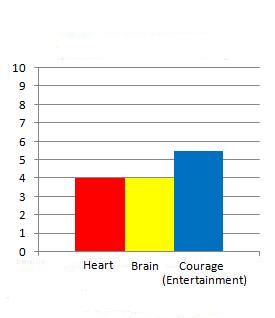
Gomorrah
Directed by Matteo Garrone.
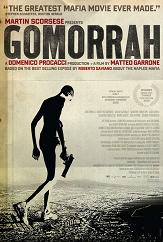
Based on the book by Roberto Saviano. In Italian with subtitles. In Naples, Roberto (Carmine Paternoster) gets a job in the waste disposal industry dumping toxic waste throughout the district. His tough boss, Franco (Tony Servillo), a money launderer, barely reacts when Roberto walks off the job one day. Don Ciro (Gianfelice Imparato) delivers hush money to families who support the local mob, known as the Camorra. Soon enough, he gets caught up in violent outbursts of gunfire that take place. Pasquale del Preto (Salvatore Cantalupo) works as the mob’s tailor and tries his best to stay out of trouble. After all, he does have a wife and child at home, so he needs to support them while staying alive. In one of the most devastatingly brutal subplots, Totò (Salvatore Abruzzese), only 13-years-old, feels very eager to join the Camorra mob family, so he tries to get a job as a drug pusher and learns how to properly use a gun. Finally, there’s Marco (Marco Macor) and Ciro (Ciro Petrone), two adolescents obsessed with Scarface, who reenact acts of violence and goof around guns, but, soon enough, they get caught up with the real violence of the Camorra. Director/co-writer Matteo Garrone, who also directed The Embalmer, goes for an appropriate cinéma vérité that makes you, the viewer, feel merely like a spectator a voyeur into the intersecting lives of all these characters who go about their daily routines in Naples. The dimly-lit and somewhat grainy cinematography effectively enhances the film's overall grim atmosphere. It’s quite emotionally devastating to watch the young Italian teenagers behave with such anarchy and delinquency while increasingly putting their life in great danger. What causes them to be so violent and hateful? Garrone doesn’t present easy answers nor does he explore the dynamics of the teenagers’ family life, but one can deduce that their aggressive behavior comes from both their nature and their nurture. While there isn’t a clear protagonist here, the Camorra mob family as whole substitutes for the protagonist because each of the subplots and characters revolve around it either directly or indirectly. At a running time of 137 minutes, Gomorrah is an equally riveting, brutally honest and horrifying drama. Number of times I checked my watch: 1. Released by IFC Films. Opens February 13th, 2009 at the IFC Center and Lincoln Plaza Cinemas.
Serbis>
Directed by Brillante Mendoza.
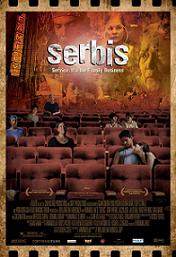
In Filipino and Tagalog with subtitles. Nayda Pineda (Jaclyn Jose) works at a porn theater run by her family while her mother, Nanay Flor (Gina Pareño), the owner of the theater, deals with a lawsuit against her husband in divorce court. Nayda’s sister, Jewel (Roxanne Jordan), and cousins, Alan (Coco Martin) and Ronald (Kristofer King), can be found working at the theater in various jobs as well. Her husband, Lando (Julio Diaz), runs a cafeteria near the theater. Meanwhile, Merly (Mercedes Cabral) tells her boyfriend, Alan, that she’s pregnant and pressures him to get married. The theater’s patrons include gay prostitutes and hustlers, some of whom are transvestites. Although the plot’s setting inside a porn theater inevitably recalls the French film Porn Theatre, the plot in Serbis, which translates as “Service”, feels less engaging than that film. The dramatic tension lies in the family’s struggle to maintain the failing porn theater while dealing with each of their own personal problems. Unfortunately, screenwriter Armando Lao includes too many scenes that jump around between the family members without allowing you to feel absorbed enough by the events happen to them, which, in turn, makes it increasingly difficult to care about any of the characters or their problems, especially Nanay’s. Her courtroom troubles could easily be part of a separate film. The frank and occasionally pornographic nudity onscreen serves as a way to enhance the film’s reality and to avoid sugarcoating it. In a way, the viewer feels like a voyeur who’s merely watching the home videos of the Pineda family, especially given that director Brillante Mendoza shoots the film with a digital camera. However, without a protagonist and because none of the characters are particularly fleshed out enough, you ultimately feel a bit uncomfortable and desensitized as you observe them going about their daily and nightly activities at the theater. At running time of 90 minutes, Serbis often drags with too many poorly developed characters its convoluted, unfocused plot. If it were more character-driven and had a sharper screenplay, it would have been a much more captivating drama. Number of times I checked my watch: 5. Released by Regent Releasing/Here! Films. Opens January 30th, 2009 at the Angelika Film Center.
Summer Hours
Directed by Olivier Assayas.

In French with subtitles. Adrienne (Juliette Binoche), a designer living in New York, and her siblings, Frédéric (Charles Berling), a writer and economist, and Jérémie (Jérémie Renier), a business man, gather together, along with their wives at the bucolic retreat of their elderly mother, Hélène (Edith Scob), in France. Adrienne’s boyfriend, James (Kyle Eastwood) also shows up from New York eventually. The large house is filled with artworks that Hélène’s brother, now deceased, had collected, so she cherishes them as much as he had, especially since they had a strong bond together and that he himself was an artist. She tells Frédéric, separately, that she wishes to have the artworks displayed in a museum after her death. When she finally passes away, Jérémie has relocated his business to China and Adrienne plans to marry her boyfriend. Both Adrienne and Jérémie want to sell the house as well as the artworks in it despite that Frédéric would like to respect their mother’s wishes by keeping the house and preserving the priceless artworks. Soon enough, there’s sibling rivalry that leads to arguments and the rekindling memories from their experience at the house as a family. In a poorly developed subplot, Frédéric’s teenage daughter, Sylvie (Alice de Lencquesaing) , shows up late in the film and her father hopes that the house remains intact and unsold so that the new generation will have some sort of connection with the old one. Unfortunately, writer/director Olivier Assayas fails to generate any palpable dramatic tension while too many scenes go on and on with characters talking a lot, but actually saying very little. Although the characters seem quite likable more often than not, it’s difficult to truly care about what they’re thinking and feeling, so you’re left feeling cold and distant from them rather than feeling warm and engrossed. None of the actors or actresses gets a chance to shine in their roles, even when it comes to Juliette Binoche who’s usually radiant and charming, but simply doesn’t have much to sink her teeth into here. At a running time of 102 minutes, Summer Hours has exquisite cinematography and an initially intriguing plot, but that doesn’t compensate for its bland and meandering screenplay that lacks palpable dramatic tension and fails to bring any of its characters to life. Number of times I checked my watch: 5 Released by IFC Films. Opens May 15th, 2009 at the IFC Center and Lincoln Plaza Cinemas. 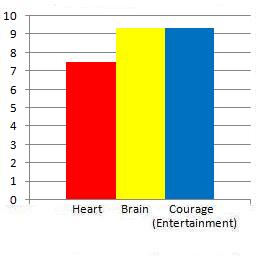
Tokyo Sonata
Directed by Kiyoshi Kurosawa.
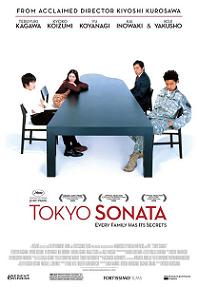
In Japanese with subtitles. When Ryuhei Sasaki (Teruyuki Kagawa) gets fired from his administrative job at a corporation, he feels too ashamed to tell the sad news to his wife, Megumi (Kyoko Koizumi), and two sons, Kenji (Kai Inowaki) and Takashi (Yu Koyanagi). He pretends to go to work each morning, but instead lines up at an employment office in hopes of finding another job. On top of that, he can’t afford to buy lunch, so he lines up outside to get free food. It’s there that he meets one of his old friends, Kurosu (Kanji Tsuda), who happened to have been laid off work. Kurosu invites him to have dinner at his home while pretending to his wife that they’re both colleagues at work. Ryuhei seems afraid of losing his power as head of the family and tries to use it as often as possible to try to strength his self esteem and reputation. For instance, he gets angry at his older son, Takashi, for enlisting in the U.S. army and prohibits his younger son, Kenji, from following his passion to play the piano. Gradually, the Sasaki family becomes more and more dysfunctional. Co-writer/director Kiyoshi Kurosawa slowly builds up dramatic tension as you observe Ryuhei sinking further and further away from the state of stability which he had before he got fired. Kurosawa wisely adds some comic relief to ease the tension, such as Ryuhei programming his cellphone to ring at a designated time so that he could pretend that it’s an important business-related call. The plot briefly goes over-the-top later in the second act as it veers into thriller territory in a way that’s very slightly distracting from its overall dramatic momentum. Nonetheless, the screenplay’s poignant moments, strong attention to detail along with fine performances from the entire cast helps to keep you mostly engaged from start to finish. At a running time of 119 minutes, Tokyo Sonata manages to be an often captivating and engrossing drama with a sensitive, intelligent and tender screenplay. Number of times I checked my watch: 1. Released by Regent Releasing. Opens March 13th, 2008 at the IFC Center and Lincoln Plaza Cinemas.
Tulpan
Directed by Sergei Dvortsevoy.
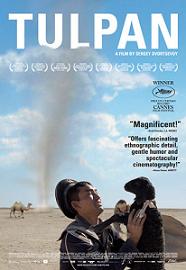
In Kazakh and Russian with subtitles. After spending time in the Navy, Asa (Askhat Kuchinchirekov), comes back home where he moves into the yurt of his older sister, Samal (Samal Yeslyamova), located in the Hunger Steppe of Kazakhstan. Her brother-in-law, Ondas (Ondasyn Besikbasov), and their four children also reside there. Asa’s friend, Boni (Tulepbergen Baisakalov), suggests that he should go far away from the steppe to somewhere urban, but Asa refuses to leave. He wants to settle down and get married, but, Tulpan, the only available young woman in town, doesn’t like him because he has big ears. It also doesn’t help that he doesn’t have his own herd nor does he have the right skills to be a competent shepherd. The only way that he can own a herd is by getting married. No matter how often he persistently tries to get Tulpan to at least communicate with him to show a modicum of interest, she constantly avoids him by giving him the silent treatment. Although the thin plot has a few moments of comic relief that are actually funny, most of the comedic attempts fall flat, especially when it comes to Boni’s crazy behavior as a secretly porn-obsessed driver of a small truck. What’s left is a rather tedious and slightly dull look at life on a steppe as Asa gradually learns more about shepherding, i.e. how to pull a lamb out of its mother during birth while keeping the lamb alive and breathing. In a subplot, many lambs are dying right after birth for mysterious reasons that become revealed later. There’s a lot of detail involved during those birth scenes, which gives the film a heightened sense of realism and brief tenderness. Director/co-writer Sergei Dvortsevoy shoots in a cinema verité style which helps you to feel somewhat absorbed into the story. The beautiful, vast and flat landscape of the steppe along with its unpredictable weather that includes sandstorms feels like a character itself and a much more interesting and lively one compared to Asa or anyone else. Why not show Tulpan interacting with him at least at some point? Or at least the audience could have gotten more information, whether subtle or not, about what’s really going on in her mind or Asa’s mind, but both characters end up ultimately forgettable. Despite its rich, picturesque scenery and a few briefly amusing and tender moments, Tulpan feels uneven, meandering, unimaginative and somewhat bland both as a drama and as a comedy. Number of times I checked my watch: 4. Released by Zeitgeist Films. Opens April 1st, 2009 at the Film Forum. 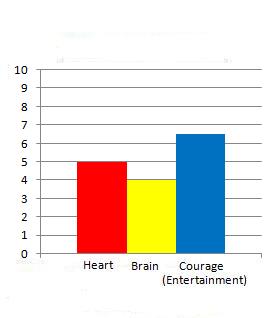
Waltz with Bashir
Directed by Ari Folman.
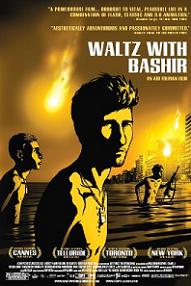
This deeply moving and captivating documentary focuses on Ari Folman’s struggle to remember what events that had precisely occurred during the June 1982 Lebanon War which he had served in as an Israeli soldier. During that war, Israeli soldiers invaded and attacked Beirut, Lebanon. Nine days before he was to become President of Lebanon, Bashir Gemayel was assassinated, which set forth the Christian Phalangist Militia attacks on the Sabra and Shatila refugee camps. During the time, the Israeli soldiers stood and watched without putting an end to all the violence against the Lebanese, including innocent civilians. Folman wants to grasp those events in detail while trying to sort out the visions that he still has in his memory. Are those visions merely hallucinations or did they actually happen? The truth is there, somewhere, but it’s hidden under a lot of repressed grief, regret, anger and, above all, confusion that fogs Folman’s and other soldiers’ minds. It’s quite riveting and fascinating to watch as he interviews fellow soldiers to try to get closer to the truth by asking listening to their own recollections and comparing them with his own so that he could, hopefully, piece them all together in the end. Folman also serves as the film’s director and includes absolutely gorgeous animation that combines 3D effects along with 2D effects. There’s somewhat of a dreamlike, hypnotic effect to many of the flashback sequences which, along the poignant musical score, helps to immerse you into the scenes, especially the many powerful war scenes. A particularly unforgettable scene occurs when Israeli soldiers slowly walking ashore from the Mediterranean Sea while fireballs explode around them. The only non-animated sequence shows up at the very end with actual footage of the Lebanese victims of the Sabra and Shatila massacre, but even those feel quite resonating. At a running time of only 87 minutes, Waltz with Bashir manages to be a visually stunning, haunting, emotionally enthralling and mesmerizing documentary from start to finish. Number of times I checked my watch: 0. Released by Sony Pictures Classics. Opens December 26th, 2008 at the Landmark Sunshine Cinema and Lincoln Plaza Cinemas.
Wendy and Lucy
Directed by Kelly Reichardt.
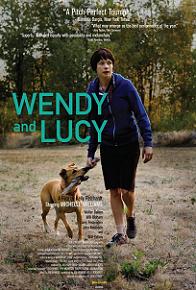
Wendy (Michelle Williams) travels to Alaska to start a new job, but gets stranded in a small Oregon town when her car breaks down. After being fingerprinted at the police station for shoplifting, she also searches for her beloved dog, Lucy, which disappeared from a supermarket’s parking lot. An auto shop mechanic (Will Patton) tries his best to give her a discount so that she can afford to fix her car that’s parked right across from the shop. She also meets a security guard (Wally Dalton) who lets her use his cellphone when she wants to call the pound and helps her monetarily. Director/co-writer sticks to a minimalist plot just like she did in Old Joy. There aren’t any evil characters here; just a character experiencing two conflicts and meeting seemingly friendly, small-town people along the way. Michelle Williams delivers a raw, convincing performance, but she doesn’t really have that much material to chew on and to truly stand out. It’s somewhat refreshing, though, to watch a film with such a slow pace that takes its time to introduce its few characters besides the protagonist. The small town itself becomes a character of its own that’s more interesting than any of the other characters in the film. At a running time of only 80 minutes, Wendy and Lucy doesn’t have any real surprises or insights and often drags, but at least it has a few heartfelt moments that leave you feeling quietly moved. Number of times I checked my watch: 6. Released by Oscilloscope Pictures. Opens December 10th, 2008 at the Film Forum.
Main Page
Film Festival
______________________________________________________
|




















